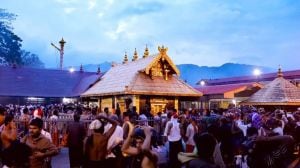The new republic
Nepalis cast a crucial vote today with one certainty: no one will miss the monarchy

Thursday8217;s polls in Nepal to elect a constituent assembly should have been the logical culmination of the extraordinary moments in April 2006, when massive protests forced an authoritarian monarchy to cede power to the people. The objectives of the constituent assembly, the first ever in Nepal8217;s history, are to ratify the transformation of the nation from a feudal kingdom into a federal republic and integrate the Maoists, who had fought a violent struggle against the state since 1996, into pluralist politics. All the three concepts 8212; 8220;federal8221;, 8220;republic8221;, and 8220;mainstreaming the Maoists8221; 8212; have proved to be problematic. No surprises there. Post-conflict situations rarely stick to the original script for peace and reconciliation.
Long-suppressed groups such as the Madhesis, who inhabit the Terai, or the plains of Nepal, are asserting themselves. Some of these protests have turned violent. Although the monarchy has already been consigned to the dustbin, malevolent royalists have been making mischief. More importantly, the Maoists, who had promised not to intimidate the electorate during the elections, have not kept their word. Although unprecedented enthusiasm has defined the vigorous campaign for the assembly, there are reasons to keep one8217;s fingers crossed. For one, there is no guarantee that the election results will produce the stability so badly needed for Nepal8217;s political and economic reconstruction. The run-up to the elections has seen deepening divisions among the major political parties and between them and the Maoists.
Ideally, the elections to the constituent assembly should have been held after the many preceding steps in the agreed road-map for peace had been implemented. India, which has played a key role in promoting positive change in Nepal, however, insisted on fast-tracking the elections amidst the many new threats to the peace process. India8217;s own experience with resolving internal conflicts underlines the transformative power of exercising the popular will. While New Delhi has reasons to be hopeful, it must be prepared to devote considerable diplomatic energies to dealing with the fallout. It must be ready to persuade all the parties, especially the losers who might have over-estimated their own strength, to respect the people8217;s verdict. While holding the spoilers at bay, New Delhi must encourage the successful parties to embark on sensible power-sharing arrangements. New Delhi must also continue to lead the international coalition, which includes the United Nations, to protect the democratic aspirations of the Nepalese people as well as its own significant national interests in the very special neighbour to the north.
- 01
- 02
- 03
- 04
- 05






























